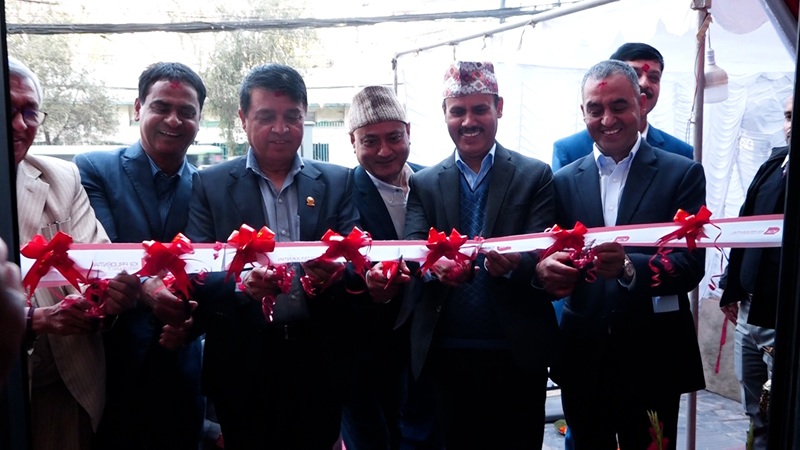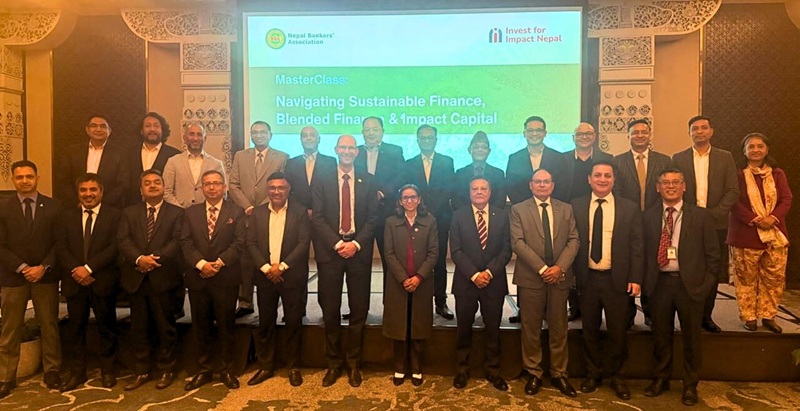NAFIJ Champions Women’s Health: HPV DNA Testing Program Aims to Combat Rising Cervical Cancer Risk in Nepal
18th August 2025, Kathmandu
In a significant step toward prioritizing women’s health, the Nepalese Association of Financial Journalists (NAFIJ) has successfully concluded a free HPV DNA testing program for its married women members.
cervical cancer screening Nepal
This vital initiative, conducted in collaboration with Marie Stopes Center in Putalisadak, aimed to screen for the Human Papillomavirus (HPV), the primary cause of cervical cancer.
The week-long program, which took place from August 7 to August 14, served a total of 26 married women over the age of 25. The focus on this demographic is particularly crucial as married women in Nepal and worldwide are considered to be at a higher risk of HPV infection due to sexual activity.
Why HPV DNA Testing is a Game-Changer for Cervical Cancer Prevention?
Cervical cancer is a serious public health concern, and its burden in Nepal is steadily rising. According to the World Health Organization (WHO), it is the most common cancer among Nepali women and a leading cause of cancer-related deaths. While other screening methods like Pap smears and VIA (Visual Inspection with Acetic Acid) are available, HPV DNA testing offers a powerful advantage. It directly detects the presence of high-risk HPV strains that are responsible for nearly all cases of cervical cancer, allowing for earlier and more accurate identification of women at risk.
NAFIJ President Menuka Karki emphasized the proactive nature of the program. “We organized this program to safeguard the health of our members,” Karki stated. “Early detection through this test will help in timely treatment and prevention, which is the key to fighting this disease.”
NAFIJ’s Commitment to Health and Awareness
The successful turnout of 26 members highlights a growing awareness of the need for preventive health measures. By providing accessible and free screenings, NAFIJ is not only offering a valuable service but also setting a precedent for other organizations. The initiative demonstrates how associations can play a vital role in promoting health literacy and access to critical healthcare services for their members.
This proactive approach is essential in a country where, despite national guidelines for cervical cancer screening, a lack of widespread awareness and accessible services remains a challenge. The NAFIJ program serves as a powerful model for how to bridge this gap and empower women to take control of their health.
Key Takeaways:
HPV DNA Testing: A highly effective screening tool for detecting high-risk HPV strains that cause cervical cancer.
Early Detection is Key: Early diagnosis of HPV infection or precancerous lesions can lead to timely treatment and prevent the development of full-blown cancer.
Targeted Screening: Focusing on at-risk groups, such as married women over 25, is a strategic way to improve public health outcomes.
Community-Led Initiatives: Organizations like NAFIJ can significantly impact public health by providing accessible screening programs and raising awareness.
NAFIJ’s commitment to the well-being of its members is commendable, and this initiative is a powerful reminder that collective action and proactive health measures are our strongest defense against preventable diseases like cervical cancer.
For more: cervical cancer screening Nepal







